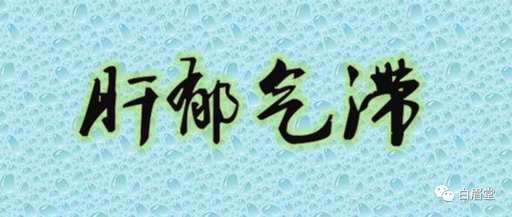The liver is a very important organ in our body for detoxification. If people frequently experience anger and depression, it can harm the liver. This leads to a condition known as Gan Yu Qi Zhi (Liver Qi Stagnation), which is a term used in Traditional Chinese Medicine (TCM). Today, we will explore what Liver Qi Stagnation is and what symptoms it presents.

Liver Qi Stagnation primarily refers to the abnormal function of the liver’s ability to regulate and disperse Qi, leading to a state of Qi stagnation due to delayed release.
In TCM, it is said: “The liver is a strong organ, it prefers smoothness and dislikes stagnation; in emotions, it manifests as anger.” This expresses that the liver is a strong and impatient organ that thrives on calm and gentle emotions, and does not favor anger or depression.
How to Diagnose Liver Qi Stagnation
In TCM, it is said that all diseases arise from Qi. Therefore, only by resolving the issue of Liver Qi stagnation can women reduce their illnesses, or even avoid them altogether.
1. Causes of Liver Qi Stagnation
The following are the main causes of Liver Qi stagnation:
Family Disharmony: Frequent arguments between spouses or tense relationships with in-laws can lead to discomfort in the liver.
Social Pressure: For example, older unmarried women often face pressure from parents, relatives, and colleagues regarding marriage, compounded by societal criticism of their situation, leading to significant stress and discomfort in the liver.
Work Pressure: In modern workplaces, there is no gender preference; women face unprecedented pressure, especially white-collar women who are torn between family and career, most of whom experience discomfort in the liver.
Poor Self-Regulation: Many women struggle to cope with issues, tend to dwell on negative aspects of life and work, and do not know how to self-soothe, which often leads to Liver Qi stagnation.
2. Manifestations of Liver Qi Stagnation
One manifestation is Qi stagnation, which means: Qi is stagnant within the body, leading to feelings of depression and oppression, commonly described as feeling “stifled” or “simmering with anger.” This is a typical sign of Liver Qi stagnation. Prolonged Liver Qi stagnation can lead to heat accumulation, resulting in excessive liver fire and irritability. Some people may sigh frequently, feel unhappy, and risk developing serious illnesses; others may become impulsive and easily angered, causing distress to themselves and others.

Many women report that they are aware of their poor health and wish to take blood-nourishing supplements, but they often develop mouth ulcers or have trouble sleeping after taking them, tossing and turning restlessly. Some believe this is due to “deficiency not accepting nourishment,” but in fact, these issues are mostly caused by liver fire; if the liver fire is blocked, how can nourishment be absorbed?
The dangers of Liver Qi stagnation are significant and beyond imagination; it can lead to blood stasis, weakened temper, dampness accumulation, and even yin deficiency with yang excess… In short, the “crimes” of Liver Qi stagnation are numerous.
Today, there are many people suffering from Liver Qi stagnation, especially women who juggle family responsibilities and careers, raising and educating children while also caring for elderly parents and in-laws, making it difficult to avoid Liver Qi stagnation.
How to Determine if You Have Liver Qi Stagnation

Just as evidence is necessary for solving a case, self-diagnosis requires similar rigor. The most critical evidence for Liver Qi stagnation can be found on the tongue. Generally, a person’s tongue is oval-shaped, while someone with Liver Qi stagnation will have a pointed tongue, with the tip and edges appearing red—this is a key clue for diagnosing Liver Qi stagnation.
Of course, to confirm Liver Qi stagnation as a solid diagnosis, you will need the following “evidence”:
Dry Throat:Feeling dryness in the mouth and throat, as if there is no saliva, but this is merely a sensation; upon examining the tongue, some may still see it covered in saliva.
Sensation of a Lump in the Throat:Feeling as if there is a hawthorn seed stuck in the throat, which cannot be coughed out or swallowed, known as “plum pit Qi.”
Dizziness: Some women frequently experience dizziness, either all day or in sudden episodes, and some may also experience headaches.
Poor Appetite: “Liver wood counteracts spleen earth,” so Liver Qi stagnation can lead to various spleen and stomach issues, such as lack of appetite, bloating, and stomach pain.
Bitter Taste in the Mouth:Especially in the morning, many women report a bitter taste in their mouths.
Body Temperature Fluctuations: Feeling hot when dressed and cold when undressed, complaining of heat in a warm room but feeling cold outside.
Irritability: Individuals with Liver Qi stagnation often feel irritable, easily angered, and prone to holding in their anger.
Nausea: Due to “Liver wood counteracting spleen earth,” it can cause stomach Qi to rise, leading to feelings of pressure in the stomach, belching, acid reflux, or even vomiting.
Chest Tightness: Feeling tightness in the chest, even experiencing palpitations, and being diagnosed with heart issues. In fact, individuals with heart problems should first address Liver Qi stagnation if their tongue is pointed, as this can help resolve heart issues.
Rib Pain: A persistent feeling of fullness or pain in the ribs.
Insomnia with Vivid Dreams: Insomnia can primarily stem from two causes: blood deficiency or Liver Qi stagnation. Frequent dreaming is also a manifestation of Liver Qi stagnation; such individuals often dream continuously upon falling asleep.
Low Mood: Sighing, feeling melancholic, and being particularly sensitive.
Cold Hands and Feet: Many people know that cold extremities can be due to yang deficiency, blood deficiency, or blood stasis, but few understand that cold hands and feet caused by Liver Qi stagnation can also occur. If cold hands and feet are present along with the aforementioned symptoms, consider the possibility of Liver Qi stagnation.
All of the above are criteria for diagnosing Liver Qi stagnation. If at least one or two symptoms match, and the tongue is pointed, it can generally be concluded that there is Liver Qi stagnation. In fact, even without examining these symptoms, women can have a sense of their own condition. They know whether their mood is smooth, if they have encountered distressing events, if they have been wronged, if they feel pent-up, and if work pressure is significant… These matters are clearer to them than anyone else, so the true diagnostic standard for Liver Qi stagnation lies within their own hearts.

○ We maintain a neutral stance on the views expressed in this article, provided for reference and discussion purposes only ○
○ Content sourced from the internet, copyright belongs to the original author ○
○ If there is any infringement, please contact us for removal ○


